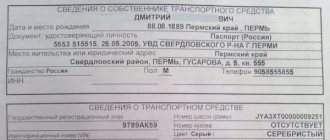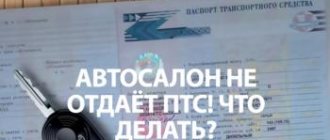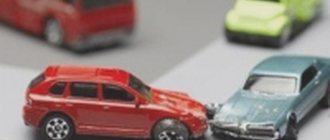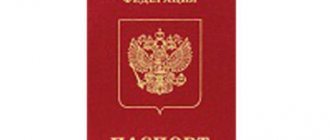What does the term “vehicle arrest” mean?
A car seizure is a type of property seizure. In other words, the seizure of a vehicle limits the owner’s rights to use the car.
At first glance, the above formulation does not pose any particular difficulties for perception. However, car seizure is one of the most confusing legal areas because this type of punishment is applied by different authorities and, accordingly, is regulated by different legislative acts.
Which authorities can seize a vehicle?
Any car can be simultaneously considered:
- an object of increased danger, which requires compliance with strictly defined rules of design and use;
- property that has a high value, which can be used to ensure various compensations and obligations.
Based on the above definitions, the following government agencies can impose restrictions on a car:
- Bailiff service and courts at various levels;
- traffic police;
- investigative authorities;
- customs departments and tax inspectorates.
What does arrest of a vehicle mean?
Restricting a vehicle in the form of a seizure can have various consequences. In this situation, very often even officials confuse the levels and types of sanctions applied.
The thing is that with the concept of “arrest” many motorists generalize several completely different penalties:
- detention of a vehicle;
- ban on exploitation;
- restriction of any registration actions.
Since only the last point relates to the topic under discussion, and the drivers themselves call it an “arrest,” let’s look at it in more detail.
Limitation of registration actions
Restriction of registration actions in other words is called arrest of the right to any type of property disposal. Each of these concepts means the same thing - the imposition of a restriction, and sometimes a ban, on the owner’s right of ownership in relation to his vehicle. In this case, the owner cannot carry out a single registration operation with the car, or even undergo a technical inspection.
The imposition of arrest sanctions occurs through a court order and only after notification of such a decision by traffic police officers.
However, there are several exceptions when a ban can be imposed without a court decision.
- Damage to vehicle identification plates. In this situation, the traffic police independently decides on the imposition of sanctions.
- Execution of a court decision by executors (not for all cases).
- Raids carried out jointly by the FSSP and the State Traffic Safety Inspectorate to identify persistent fine defaulters.
Most cases of seizure of a car are related to the financial component.
This measure can be used as:
- coercion to pay existing debts;
- provisional procedure of courts on issues related to property disputes;
- problems due to seizure sanctions on the buyer’s car.
Problems associated with the seizure of a car may arise not only for the owner who was at fault. There are often cases when the newly minted owner of a problem car suffers from sanctions.
The main reasons why a new vehicle owner faces seizure are:
- ignorance of the former owner of the car about the imposed sanctions;
- dishonesty of the car seller;
- mistakes by officials.
In the first case, when the old owner is subject to certain obligations or penalties for payments, he may not even be aware of it.
Most often, this situation arises when receiving a fine from an automatic system for recording violations. The second option is if the car is resold by resellers and it has not been registered. If the transaction was concluded with a seller who did not know about the imposition of encumbrances, then through joint efforts the arrest can be lifted very quickly and without unnecessary complications. When the transaction was carried out through a reseller, the chance of finding the former owner and trying to come to an agreement with him was reduced to zero.
The most difficult case will be when the former owner knows about the seizure of the car and, by selling it, tries to shift the problem to another person.
In such a situation, dishonest car owners disappear immediately after signing the contract in the best traditions of the world's magicians. But the buyer can only spend a long time knocking on the thresholds of various authorities in search of justice and return of the amount spent.
Can bailiffs seize a car?
Usually the reason for the seizure of a car is debts on loans, alimony, taxes
Arrest is usually imposed in the following cases:
- If the owner bought a car on credit, but did not pay it off.
- After a court decision, when the defendant was recognized as a debtor.
- On the property of a company or individual if they are declared bankrupt.
https://www.youtube.com/watch?v=ytcopyrightru
The judge who discovered its presence during the hearing has the right to seize any property. So the defendant cannot get rid of him, since this would harm the interests of the plaintiff. In some cases, a customs inspector has the right to seize a vehicle, but in this case the car is immediately sent to a impound lot.
In some cases, the debtor has the right to challenge the decision, for example, if the car officially belongs to his relative or it is necessary for professional activities and income generation.
In accordance with the arrest procedure, the car is sent to the impound lot. They also confiscate documents for the car - PTS, registration certificate. A document regarding this is drawn up, which witnesses are required to sign. But if the location of the car is unknown to the bailiff, then the arrest can be made on paper in absentia. This makes it possible for unscrupulous debtors to deceive buyers.
If the car is seized, then, in principle, it is possible to draw up a purchase and sale agreement for it. The question is what result this will give.
Information about encumbrances is promptly received by the traffic police. Therefore, the new owner will not register such a vehicle. In addition, the transaction itself may be declared invalid. In general, the buyer is at great risk. But there are several ways to get out of the situation.
Read in detail about how seized cars get to the bailiffs and what methods there are for selling confiscated confiscated goods, read here, and we talked about how the sale of seized cars at Sberbank Leasing proceeds here.
When a vehicle is seized, the bailiff issues the owner with completed documents confirming the fact that the car is in storage with the car owner, while he is warned of criminal liability for the illegal sale of a car under Article 312 of the Criminal Code of the Russian Federation for embezzlement, concealment or illegal transfer.
The punishment under this article of the law, depending on the severity of the crime committed, is punishable by:
- a fine of 80 thousand rubles to 500 thousand rubles;
- a fine in the amount of earnings for a period from 6 months to 3 years;
- compulsory work for up to 480 hours;
- forced labor for a period of 2 to 3 years;
- arrest for up to six months;
- imprisonment for a term of up to 2 years or 3 years with a fine of up to 80 thousand rubles or earnings for a period of up to six months.
When a Sberbank client does not fulfill his obligations to pay for a loan or lease of a car, the bank has the right to seize it from the client to pay off the debt. The procedure for selling a car by a bank is as follows:
Bailiffs, following a court decision to seize a car at the request of the bank, seize the car, place it in the parking lot, and take documents from the car owner.- An invited appraiser checks the technical properties of the vehicle and names an approximate price.
- Sberbank, through its subsidiary, sells cars on lease. We wrote about this in more detail here.
This type of sale is becoming a popular form of buying a car because it has a number of advantages:
- low price, as a rule, below the market price, which is due to the bank’s desire to quickly obtain working capital;
- legal purity and complete legality of the transaction;
- no need to pay a down payment, since the cost of a used car is relatively low;
- inability to buy an old car, since there are age restrictions - from 3 years for Russian cars and from CIS countries to 7 years for Korean, Japanese, European and American cars;
- the possibility of this procedure for individual entrepreneurs and legal entities.
We suggest you read: We prepare documents for real estate
When a seized vehicle is confiscated by bailiffs, the car is sold according to the following scheme:
- The bailiffs take the documents for the car from the owner, the car is taken to a special parking lot and sealed.
- An appraiser is invited to check the technical condition of the machine and determine its value.
- The date for the auction is set.
- An announcement is made through the media no later than a month before the auction is held.
- Applications for participation in the auction are being collected.
- An auction is being held.
- A contractual agreement is concluded with the new owner of the vehicle.
- The proceeds are not used to pay off debt.
The sale of a seized car by bailiffs has its own characteristics:
bailiffs must find a buyer for the car in no more than 2 months;- if the car is not sold within 1 month, its value is halved;
- after 2 months of inability to sell the car, the claimant is offered to take the vehicle itself to fully or partially repay the debt;
- The vehicle is returned to the owner and becomes his full disposal if the claimant refuses to pick it up;
- All actions related to the sale of a car are carried out by a specialized office that has the necessary licenses; the bailiffs themselves do not have the right to engage in sales.
You can sell a seized car, but only within the framework of the law, otherwise the seller faces criminal prosecution. The choice of sales method in each case depends on the circumstances. However, it is important to remember that any of the options will be unprofitable for the car owner, so you should be careful when buying a car on credit.
To solve your problem, get a free LEGAL consultation RIGHT NOW:
7 Moscow
How to find out if a car is under arrest
Before you purchase a vehicle, you must perform a penalty check. This can be done online using free access to open databases on special websites.
These are the resources:
- State Road Safety Inspectorate—State Traffic Safety Inspectorate;
- Federal Bailiff Service - FSSP;
- Federal Notary Chamber.
However, even performing these steps will not give a 100% guarantee of the “cleanliness” of the car. The problem is that when the judiciary makes a decision, the data is entered into the database only after several weeks. According to the latest resource, not all credit organizations and banks provide data to the database.
How can you solve the problem of vehicle seizure if you are a buyer?
Since 2013, when the law simplified the purchase and sale procedure as much as possible, transactions of this kind have become possible to carry out in a free form and without the participation of the traffic police.
That is, during the re-registration of the car, the presence of the previous owner became optional. This decision has many positive aspects. However, it allowed unscrupulous sellers to become more active.
If the purchased car is seized, there is no need to panic. There are many different ways to solve problems. True, most of them will require trouble and time.
Ways to do it
Let's consider the most promising methods.
Removal of punishment
The most legal way. You just need to find the money and pay off the debt. Problem: if the debt is large, where can I get the necessary amount? Options for where you can borrow money:
- Borrow from friends or relatives.
- Get a loan. Naturally, large banks will check the identity of a potential borrower and, most likely, will refuse. But there are various microfinance organizations that do not pay serious attention to the client’s credit history.
- Make money - if you really do it quickly.
Sometimes it's easier to let things take their course. If the amount of debt is large, and it is not possible to get money quickly, then the best way to get rid of the burden is to allow the car to be sold at auction.
You can contact a company that specializes in buying problem cars. They operate according to the following scheme:
- A certain agreement is concluded with the car owner, the meaning of which is that the car will be removed from the person’s ownership for a fee.
- The debt is paid off.
- The car becomes the property of the company, and the former debtor receives some money.
Such firms evaluate each specific situation for profitability. If you can make money by buying a seized car, then the deal with the debtor is formalized.
From a legal point of view, in this case no sale occurs. The owner simply transfers his authority over the car to a third party. The power of attorney is issued by a notary. To do this, the rightful owner of the car must present to the notary his passport, PTS and STS for the car.
But, if a vehicle is seized, the car cannot be registered with the traffic police. Accordingly, the “buyer”:
- Does not have the opportunity to become the full owner of the vehicle.
- Taking risks. The problem is this: a seized car can be sold at any time.
If we are talking about buying a problem car without re-registration, then it is better to look for a vehicle that is prohibited from performing registration actions. Such a car cannot be registered with the new owner, but it certainly will not be sold at auction.
Why is it possible to sell a seized car? The answer is simple: price. If the car appears in enforcement proceedings, then the owner is ready to make a good discount on the car.
On message boards you can even find business-class cars that sell for several hundred thousand rubles. The reason is simple: problems with documents or re-registration.
We invite you to read: Appendix. Consolidated list of government positions in the Russian Federation
Is it worth buying such a car? Only if you plan to use it for a long time. It won't be possible to sell it anyway.
A seized car cannot be deregistered or registered, but nothing prevents it from being dismantled and sold in parts.
Of course, it is more profitable to sell the entire car. But, if such a situation arises that the transport is seized. It's better to get at least some money than nothing at all.
https://www.youtube.com/watch?v=ytpressru
Thus, according to all the rules, it is impossible to sell a seized car. But there are loopholes that allow you not to pay off the debt by selling your car at auction and get money that can be hidden from the bailiffs.
If you find an error, please highlight a piece of text and press Ctrl Enter.
To solve your problem, get a free LEGAL consultation RIGHT NOW:
7 St. Petersburg
The most common reason for seizing a vehicle is late payments on a car loan.
There are several ways. Enforcement proceedings are terminated in the following cases:
- the collector partially or completely renounces claims against the debtor (for example, after drawing up an agreement on debt restructuring), withdraws his petition;
- monetary obligations have been fulfilled in full;
- it has been established in court that the seizure of property was unlawful or was carried out with violations;
- by court order.
To the debtor
If a car seller does not provide the buyer with a genuine PTS, but gives a copy, this is a reason to think
The fastest and most reliable way is to pay off the debt.
Sequencing:
- Find out which body and official imposed the restrictions (information can be obtained from the traffic police or through the FSSP Internet portal).
- Get an appointment with the bailiff who is handling the case.
- Get a copy of the writ of execution and find out what else needs to be paid, in addition to the principal amount of the debt (you will definitely have to pay a fee and penalties).
- Fulfill obligations.
- Go to the bailiff again and present him with documents confirming full payment.
- Receive a writ of execution to suspend the case.
If it is not possible to immediately repay the debt, then you need to consider the option of drawing up an agreement with the person to whom the owner of the car owes.
To the buyer
The seller’s contact information can be obtained from the reseller or at the address that was indicated in the documents when concluding the contract
If the buyer bought a car that was seized, he needs to contact the seller and inform him that the car has been seized. Resolving the issue amicably is in the interests of the previous owner, so he will most likely try to take steps to remove restrictions from the car as quickly as possible.
If the further actions of the owner of the vehicle seem suspicious, then you should carefully study the purchase and sale agreement with a lawyer and initiate its termination through the court. The basis may be the very fact of the existence of encumbrances. Especially if the buyer did not know about them at the time of signing the purchase and sale agreement.
Usually, upon termination of enforcement proceedings, the FSSP transmits information to the traffic police about the lifting of the arrest within one working day, but in practice the procedure may last longer: in this case, you can request a copy of the resolution from the owner
If the purchase was made directly from the former owner, then, on the basis of Article 460 of the Civil Code of the Russian Federation, the person has the right to terminate the transaction. To do this, it is recommended to first contact the seller and try to resolve the matter out of court. If nothing works out, then you should file a lawsuit with a request to the FSSP and a response to it.
If the transaction amount is less than 50 thousand rubles, then you will have to go to the justices of the peace, more - to the district court department. The trial (on average) can take 2 months.
If the arrest was made because of a debt that hangs on the former owner, and after repayment the transaction remains profitable, then it is easier to pay the amount: this is the fastest way to solve the problem. You cannot buy seized cars from bailiffs. This can only be done through an auction.
Appealing to the FSSP is pointless, since bailiffs act strictly according to instructions: they are not concerned about procedures involving arrested vehicles.
When buying a car you should be extremely careful. Often, scammers underestimate the value and try to sell a vehicle that has been seized. To do this, sometimes professional resellers are hired to become intermediaries. At the time of inspection of a “cheap” car, entire theatrical performances can take place, lulling the buyer’s vigilance. As a result, he is left with nothing or is forced to sue the former owner for a long time.
During the inspection, you need to carefully check everything - the vehicle title, registration certificate, and the seller’s documents. If the seller only has a copy of the PTS or another person is indicated in the “owner” column, then it is better to refuse the transaction. Before purchasing, it is recommended to check the car using the traffic police and FSSP databases. It is important that at the time of concluding the transaction there is a witness nearby who, if necessary, will confirm the fact of its completion.
What not to do when buying a car
First of all, it is worth mentioning a few simple rules, using which you can minimize the risk of buying a car burdened with sanctions.
It is imperative to conduct a full check of the legal purity of the purchased vehicle. There is no need to make exceptions even when the seller reduces the price as much as possible and asks to complete the transaction as soon as possible.
The transaction must be formalized as strictly and competently as possible. The contract must contain a clause stating the absence of restrictions. In addition, the agreement itself must be accompanied by a financial receipt and an acceptance certificate.
The fields in the contract intended for signatures must be filled out on all pages. Signatures must be handwritten and correspond to the sample found in the civil passport.
Particular attention should be paid to the moment if the purchased car has already been owned by several owners. In this case, you need to question the owner in detail, study the title and carefully read the database data on online services.
There is no need to be shy, and it is better to ask the seller for permission from your spouse, if you have one. It will be very suspicious if the owner offers an increased discount instead of a document.
You should avoid dubious sales schemes: by proxy or through resellers who do not have contacts of the old owners.
Deliberately underestimating the transaction amount is a step that cannot be taken, because according to a court decision, what is specified in the contract is paid.
Be sure to keep current contact details of the old owner of the car.
It is ideal if the owner is personally present at the traffic police during re-registration.
If the purchased car has encumbrances, and the seller has notified about this, then the terms of the sanctions must be fully described in the contract.
Can bailiffs seize a car?
Bailiffs have the right to seize property belonging to the debtor, including vehicles.
A similar procedure is initiated by a decision:
- bailiff;
- customs authorities;
- court (when considering and satisfying a claim against a debtor).
Some people, having learned that their vehicle may be subject to seizure, try to sell it quickly
If a person comes to the attention of the bailiffs, this will be reflected on the official website of the FSSP of Russia. Anyone can make a request, and this does not require registration on the portal. It is enough to enter into the search the first name, last name and patronymic of the person in whose name the car is registered, as well as indicate his place of residence and date of birth (the last 2 points are optional). The program will automatically display all enforcement cases relating to a specific person, and also indicate their status.
The check can also be carried out through the traffic police website.
To enter you need:
- vin (identification number);
- body;
- chassis.
To obtain information about the presence of restrictions, it is enough to indicate one thing.
The purposes of the arrest are as follows:
To ensure the safety of property - so that the debtor does not sell the car and hide the money.- To pay off debt through trading.
- To execute a judicial act of confiscation.
- For the purpose of executing a judicial act of arrest.
Moreover, if the vehicle is seized to pay off the debt, the amount of the debt must be at least 3,000 rubles.
A car is not included in the list of types of property for which, according to Art. 446 of the Code of Civil Procedure of the Russian Federation, it is impossible to foreclose. Exception: a vehicle that is needed by the debtor due to his disability.
The State Traffic Inspectorate website does not always promptly enter data, so it is worth checking the owner for existing enforcement proceedings on the official FSSP portal
There are several ways to determine the legal “purity” of a vehicle:
- Contact experts who select cars. They will carry out all the checks themselves.
- Go to the traffic police website (or FSSP), enter the car data (license number, VIN).
- Use third party online services.
https://www.youtube.com/watch?v=ytdevru
It is recommended to carry out this operation before leaving for a vehicle inspection. It is enough to find out the VIN number from the seller. It is often published in an advertisement. If it is not there or the owner is hiding information, then it is suspicious. When purchasing, you must require the original PTS. If it is missing, you should find out if the car is registered with the bank. Financial institutions do not issue title until the loan is repaid.
What to do if your car is seized by a bank?
To achieve justice, in this case it is worth resorting to the help of lawyers or an experienced legal representative, because the solution to such an issue can turn in any direction.
To open a case, it is enough to apply to the court to remove sanctions from personal property.
The basis for such an appeal is Article 352 of the Civil Code of the Russian Federation, which gives the buyer a chance to challenge ownership. The success of the case is possible if the court recognizes the transaction as a bona fide purchase by a person who did not know about the encumbrances of the car at the time of its sale. However, the buyer himself will have to prove the above fact and it is extremely difficult to do this on his own. This is where you will need the help of a lawyer.
In addition, the moment of imposing restrictions is also important in this matter.
- If the arrest came into force several days after the agreement was signed, then the matter will be resolved positively.
- If the seizure occurred before the purchase of the car, then winning in court becomes problematic.
What restrictions arise
When a vehicle is arrested, a special act is drawn up with the participation of witnesses
One of the purposes of the preventive measure is to prevent the destruction, damage, or sale of the car. Quite often, they learn about the imposition of restrictions when they try to register or deregister a car, re-register a vehicle to another person, or draw up a power of attorney to drive a vehicle. These actions in the presence of arrest are impossible even if the associated fees have already been paid.
If the arrest is an interim measure of judicial proceedings
If the car has become the subject of any property dispute, then, based on a court decision, temporary restrictions may be imposed on it, which last until the final decision is made. What to do if a car is seized by bailiffs?
This kind of arrest is imposed only by a special court order, which can be canceled or appealed. However, the course of action will depend on the status of the person in the case.
- If the property dispute does not concern the buyer of the car, then the restrictions can be lifted in accordance with Article 442 (clause 2) of the Code of Civil Procedure of the Russian Federation. In this case, the case will be considered in a separate proceeding and all parties must take part in it.
- If the buyer is a party to a legal dispute, then the seizure can be canceled under Article 144 of the Code of Civil Procedure of the Russian Federation. In this case, the decision will be made in the main proceedings.
What does a seized vehicle mean?
For a car, as well as for any other property that constitutes an instrument or subject of an administrative offense, in accordance with
Article 27.14
, paragraph 1 of the Code of Administrative Offenses of the Russian Federation may be seized.
At the same time, the owner of the vehicle is prohibited from disposing of it, that is, from performing any actions: registration and deregistration with the traffic police, sale, donation, in some cases, even use. In general, if such a possibility exists, then a car that is under arrest can be handed over to other authorized persons for storage.
An arrest can be initiated by:
- court when satisfying the claim of any organization if the car owner has a significant debt to it;
- bailiffs in cases where the owner of the car has various types of debts to pay fines, alimony and housing and communal services;
- traffic police;
- tax authorities in the event of tax debt;
- customs authorities when the customs clearance procedure for a car brought from abroad is violated;
- investigative authorities if the vehicle is material evidence of criminal proceedings.










